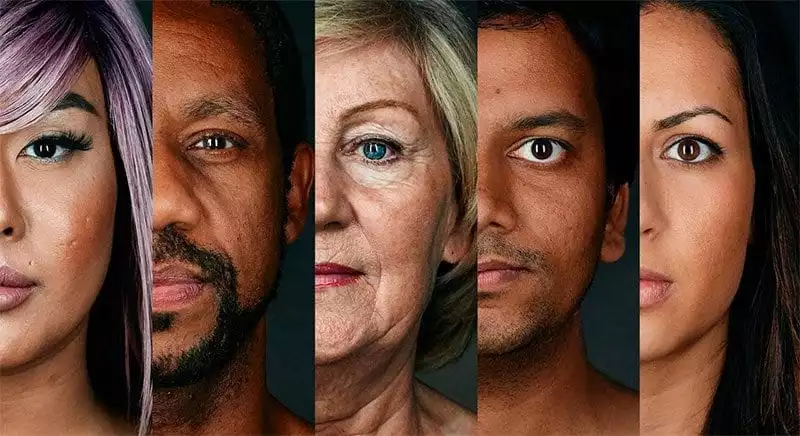Lessons for charities from corporate ads during Super Bowl 2017
The TV commercials that ran during the Super Bowl last Sunday were more striking than usual: some seemed to have a clear social and political tone. They also have some lessons for charities.
Adverts during the breaks in the Super Bowl TV coverage have to be striking. The slots are some of the most expensive advertising opportunities on the US networks. Fox was charging up to $5.5m for a 30 second slot.
But this year, they were different and they seemed to share a context that should make them of interest to charities.
Advertisement
Not only charities that can afford to run TV advertising, but all charities that promote their services, messages and fundraising needs. Whether that is via direct mail, Facebook ads, Twitter posts, or videos on YouTube.
Before we get too carried away, let’s not forget that these ads are run by for-profit commercial organisations. They will not have collaborated on any ‘theme’. They would most likely also have started work on them last year, well before the outcome of the US Presidential Election was known, or the first febrile weeks of the Trump Presidency were experienced.
The Super Bowl 2017 ads

First, let’s watch the adverts, remembering that they premiered on Sunday 5 February 2017 to one of the biggest US TV audiences of this year.
Born the Hard Way – Budweiser
“This is the story of our founder’s ambitious journey to America in pursuit of his dream: to brew the King of Beers.”
We Accept – Airbnb
“Acceptance starts with all of us. #weaccept”.
Founders Brian, Joe, and Nate, who reportedly edited the video themselves, explained:
“we hope you consider joining us by sharing your home with someone who is displaced or donating to organisations that assist those in need.”
It’s Beautiful – Coke
Coca Cola reprised its 2014 Super Bowl advert, featuring ‘America the Beautiful’ sung in a range of languages, and a variety of people and families, including gay parents.
“We believe that America is beautiful and Coca-Cola is for everyone. Let’s celebrate the moments among all Americans that promote optimism, inclusion, and humanity — values that bring us closer together.”
[Video at https://www.youtube.com/watch?v=LhP5sDUnF6c no longer available].
The Entire Journey – 84 Lumber
The full 84 Lumber advert couldn’t be broadcast because it contained content “too controversial” for broadcast. So here is the original uncut version, show a mother and daughter’s symbolic migrant journey towards becoming legal American citizens.
It’s a 10 Hair Care
“America, we’re in for at least four years of awful hair. So it’s up to you to do your part by making up for it with great hair.”
A shared tone?
There were other adverts, including one for a product promoted by nonprofit MADD, Mothers Against Drunk Driving. But they do not share the same tone as the above four adverts.
Which tone? These adverts combined inclusiveness, diversity, refugees, and all from a positive, affirming view.
It’s a tone that suggests a rebuke to the current political zeitgeist of building walls, defining ‘us’ and ‘them’ ever more simply and starkly, and of turning inwards defensively. In other words, a rebuke of the policies of the Trump Administration.
Yet they are more than a rebuke. Although they are a criticism of the attitudes that secured the presidency for Donald Trump, they meet them with a positive alternative. This is how the world is or can continue to be, if you choose it to be so, they seem to suggest.
Despite these challenging times, there is even humour sprinkled within them. That’s certainly the case with the 10 Hair Care advert with its reference to President Trump’s hair.
Am I seeing something that is not there? Possibly. Am I overstating its significance? Perhaps.
Other corporate adverts for good
Of course, breaks during the Super Bowl are not the only occasion you will see these adverts. Here’s one in a similar vein from a Danish TV station, aired on the day that President Trump introduced his travel ban on seven predominantly Muslim countries.
Amazon in the UK has been running a similar advert on TV and in cinemas since November 2016, showing religions living in harmony.
[Video at https://www.youtube.com/watch?v=Ouu6LGGIWsc is no longer available].
What can charities learn from these ads?
If there is indeed a shared tenor amongst these adverts then it is possible to derive some lessons for charities and nonprofits in how to communicate effectively now to a large national audience.
1. Courage
Speaking truth unto power is an essential element of civic life for individuals and organisations. Most don’t. But note here that four commercial entities chose to use this significant (and expensive) advertising opportunity to make a statement for tolerance, inclusiveness.
Charities often have brave staff and volunteers, but their governance usually ensures that bravery does not have to be shown. One striking example when bravery was shown was when the British Red Cross claimed last month that the NHS was facing a “humanitarian crisis”.
Charities might well have to show more courage to support their beneficiaries and to argue on their behalf. Registered charities can’t quite rightly be party political, but then can act with political nous.
2. Borrowed clothing
Those adverts could easily pass as charity adverts! The for-profit sector has learned well how the charity sector can spread the word, inspire people and convey a positive message.
That is a challenge. How can charity communications and adverts stand out from companies’ social good communications? Or is there something to be gained from charities and companies being seen as on a similar level?
Indeed, it’s not just advertising that is looking similar. Some US companies’ actions sound as if they are getting very close to the work of nonprofits.
Here is Starbucks providing free legal advice to immigrant employees affected by the Trump travel ban:
3. Storytelling
These adverts are about individuals and their stories. Budweiser is celebrating its history and founding as the story of a tenacious individual migrant.
Charities have the best stories of people – people helped and saved, and people who made these changes possible. These adverts challenge them to keep finding these stories and telling them more effectively to everyone who needs to hear them.
4. Expect criticism
The Super Bowl adverts of the above companies of course came in for criticism. They were accused of opportunism, meddling in politics, and cynicism. Some were accused of a lack of consistency and spin.

Charities can expect to receive similar or worse criticism for taking an approach similar to these companies. If The Daily Mail can devote a whole newspaper page to criticising JustGiving for its business model, rather ignoring the billions of pounds it has helped charities raise, then individual charities will almost certainly be told to stick to their knitting.
- What did you make of the Super Bowl ads? Are they examplars to inspire charities?




